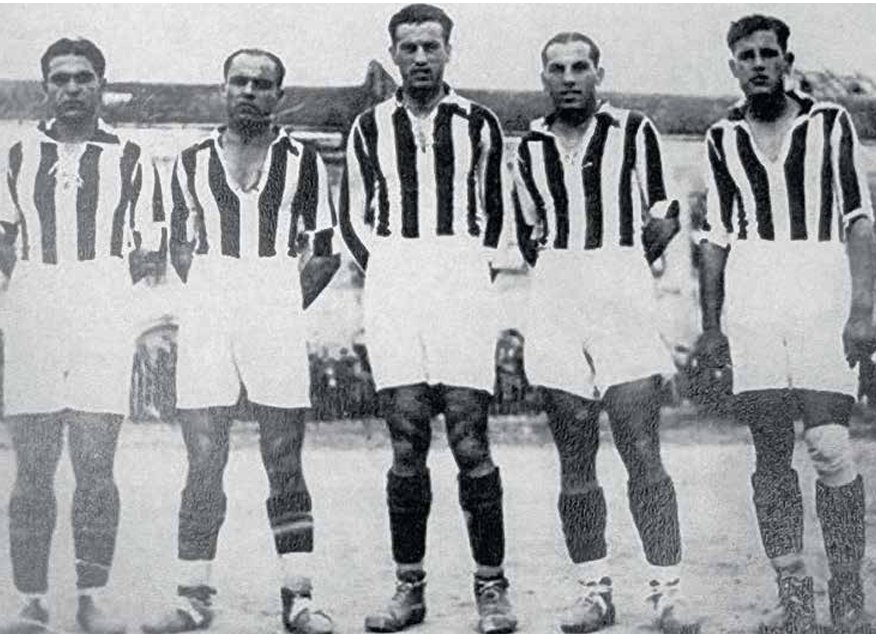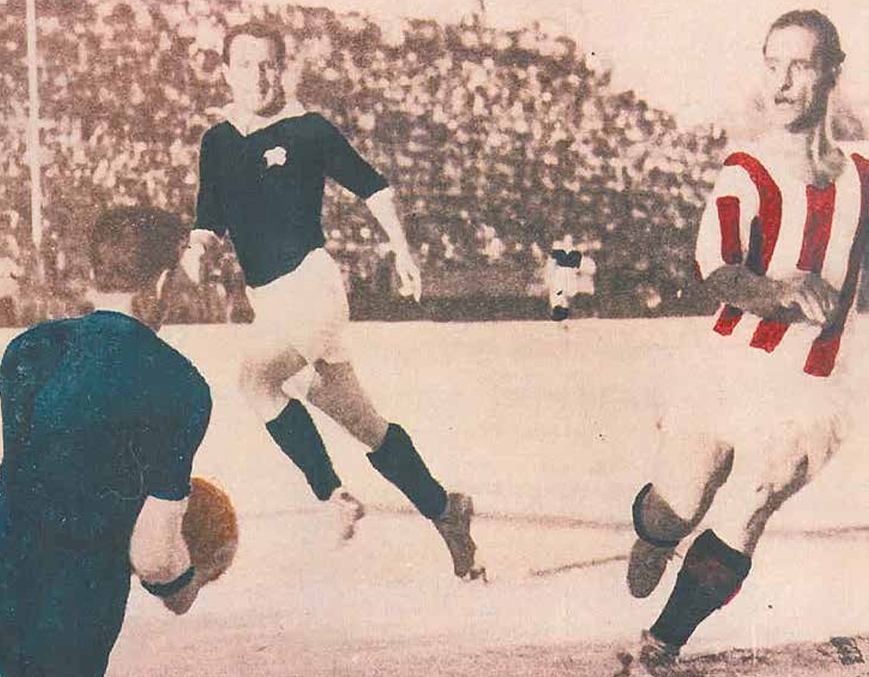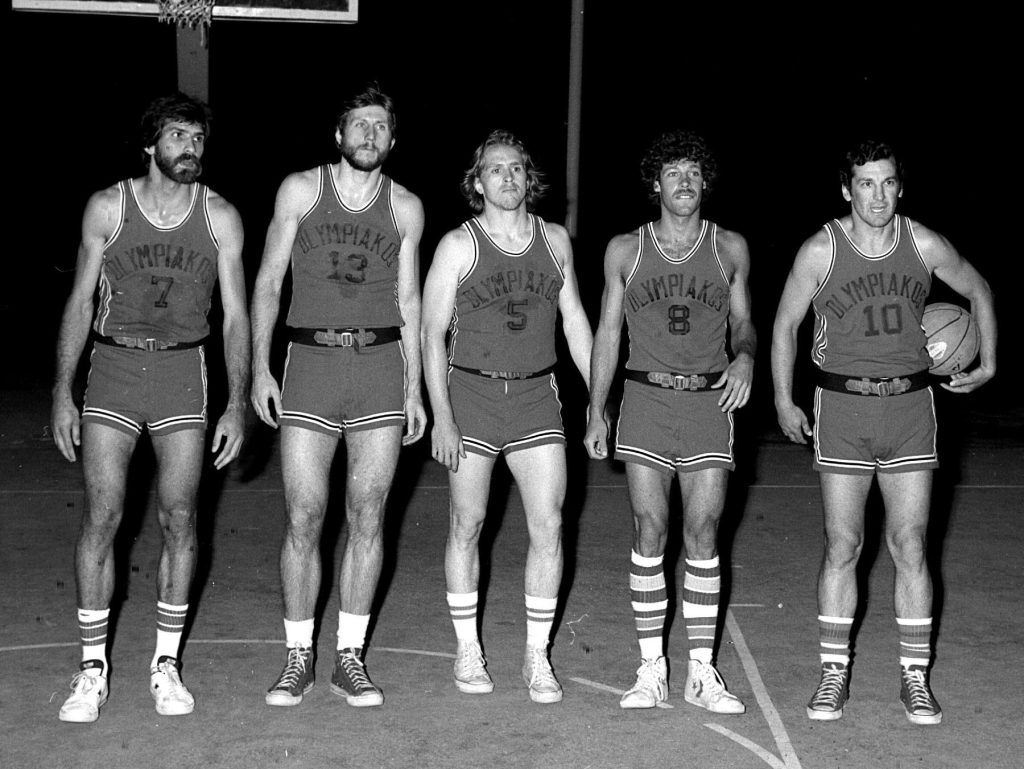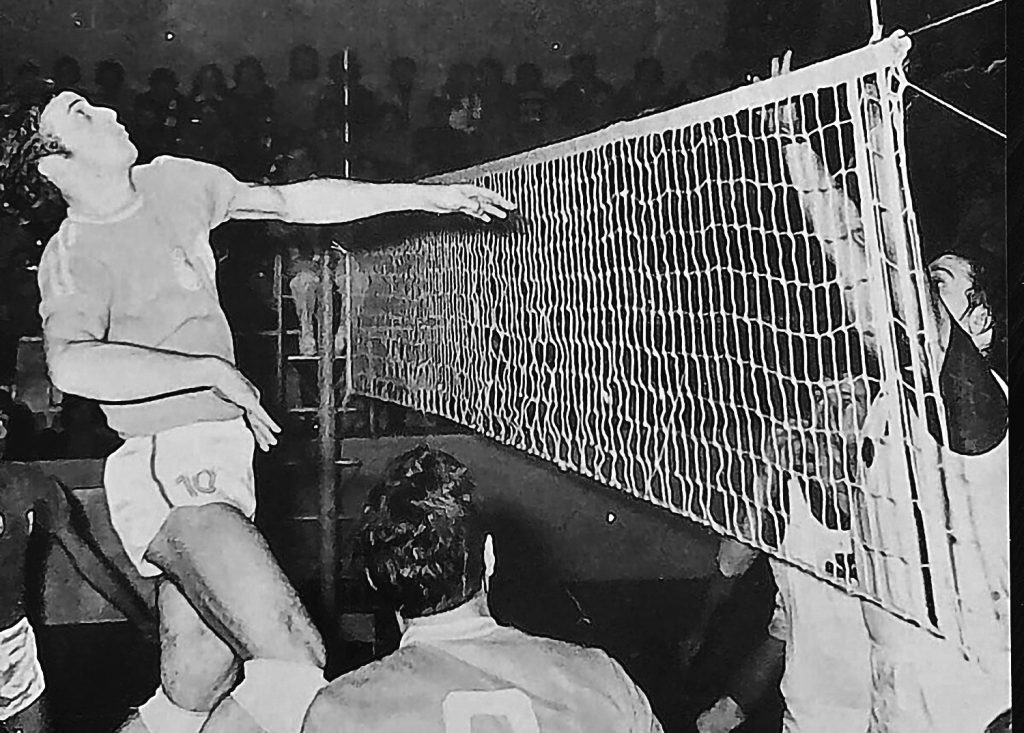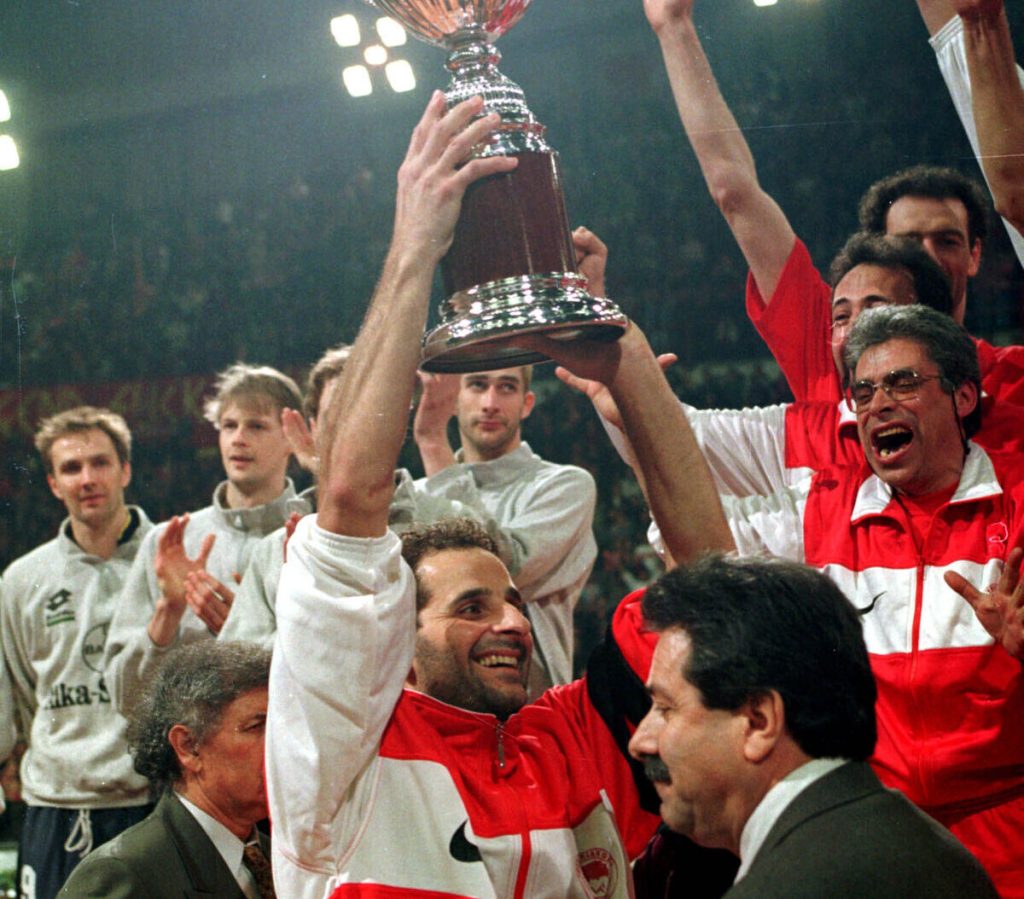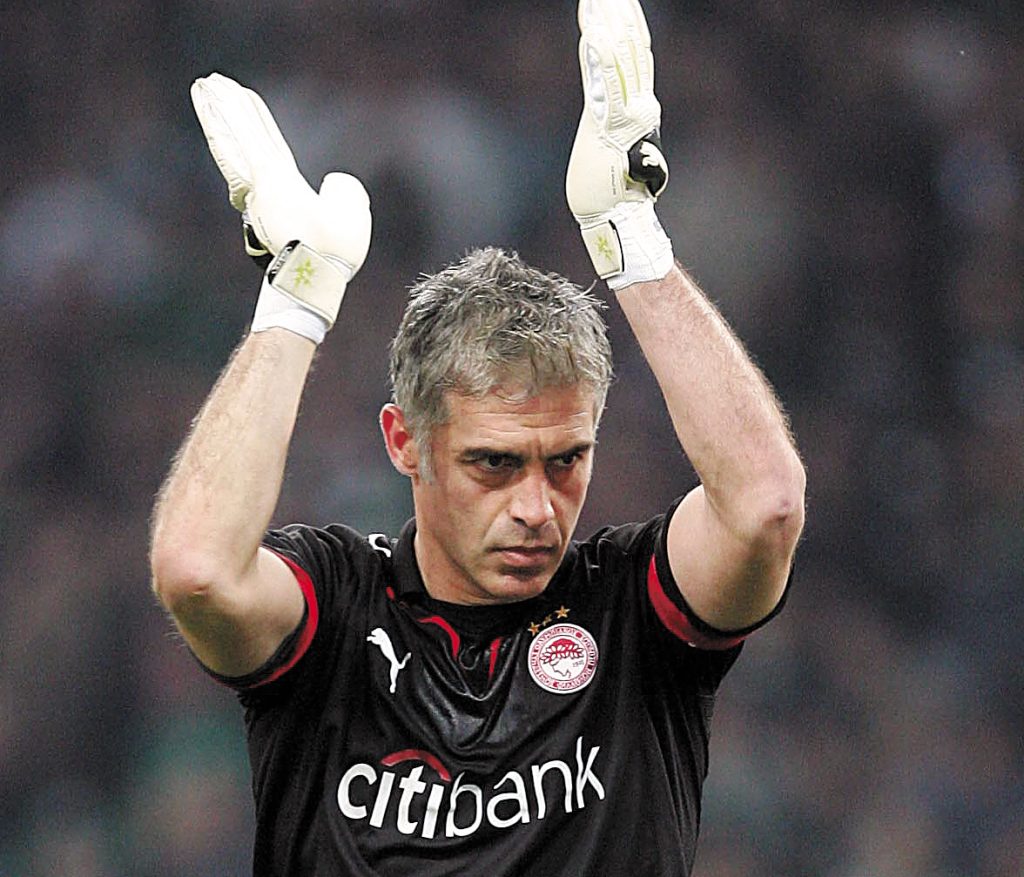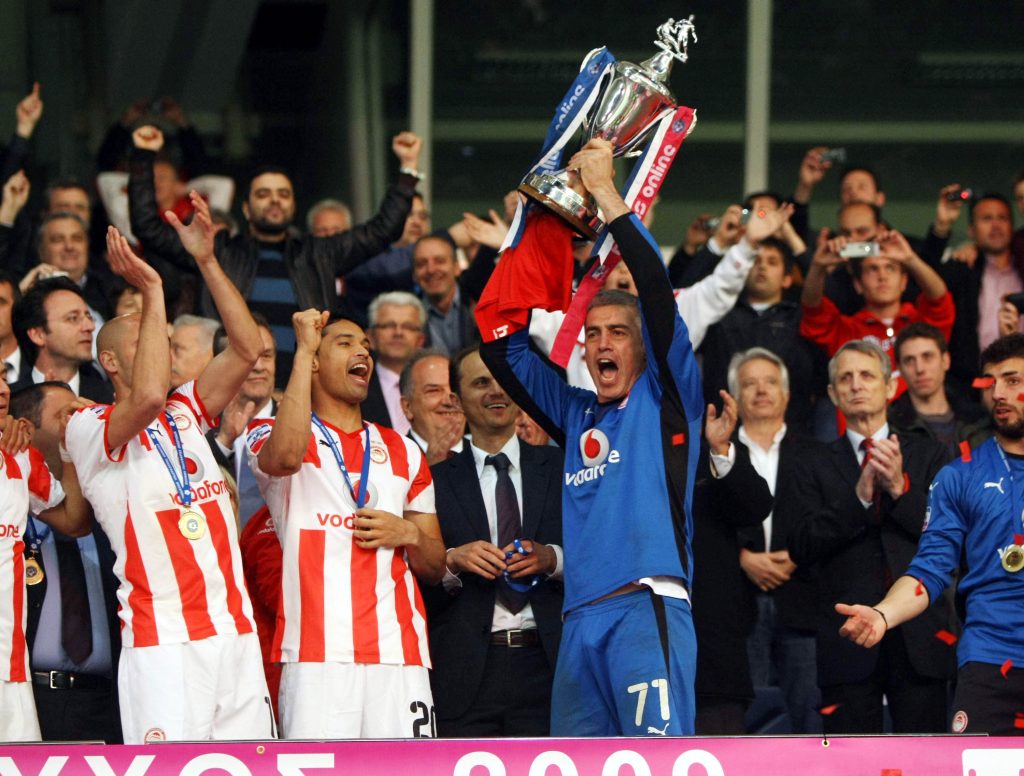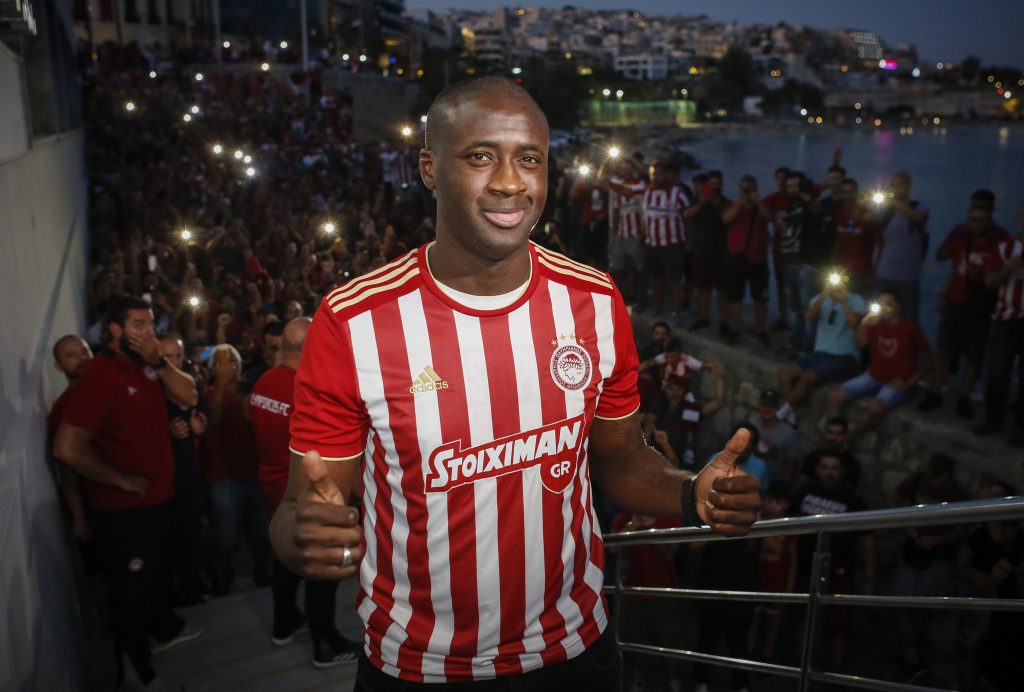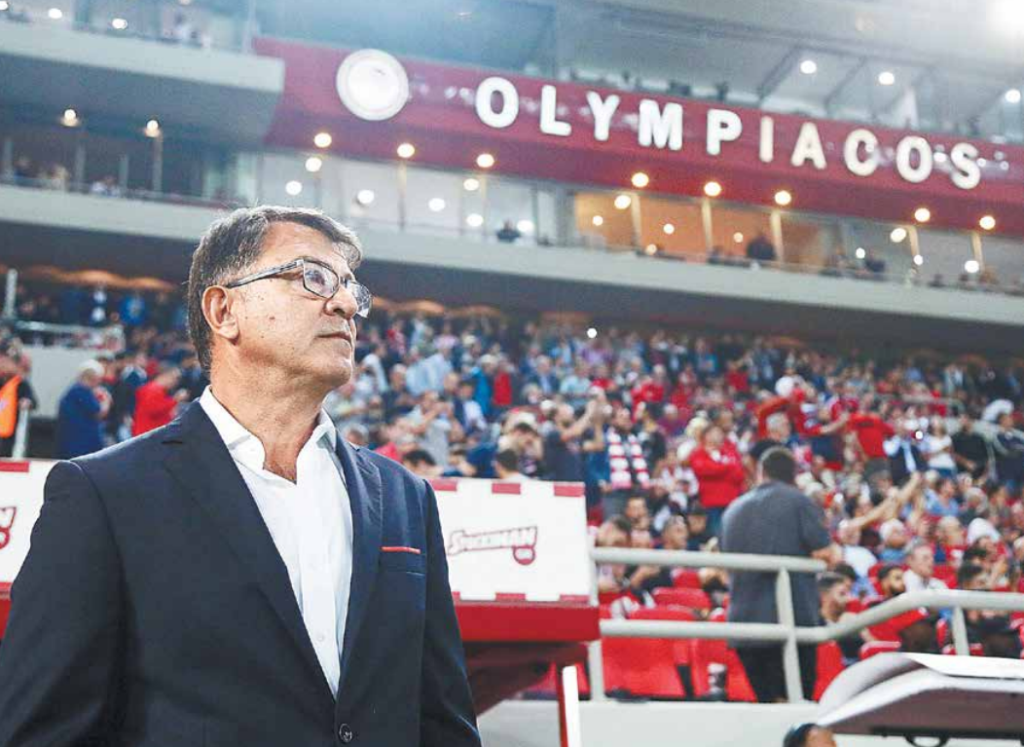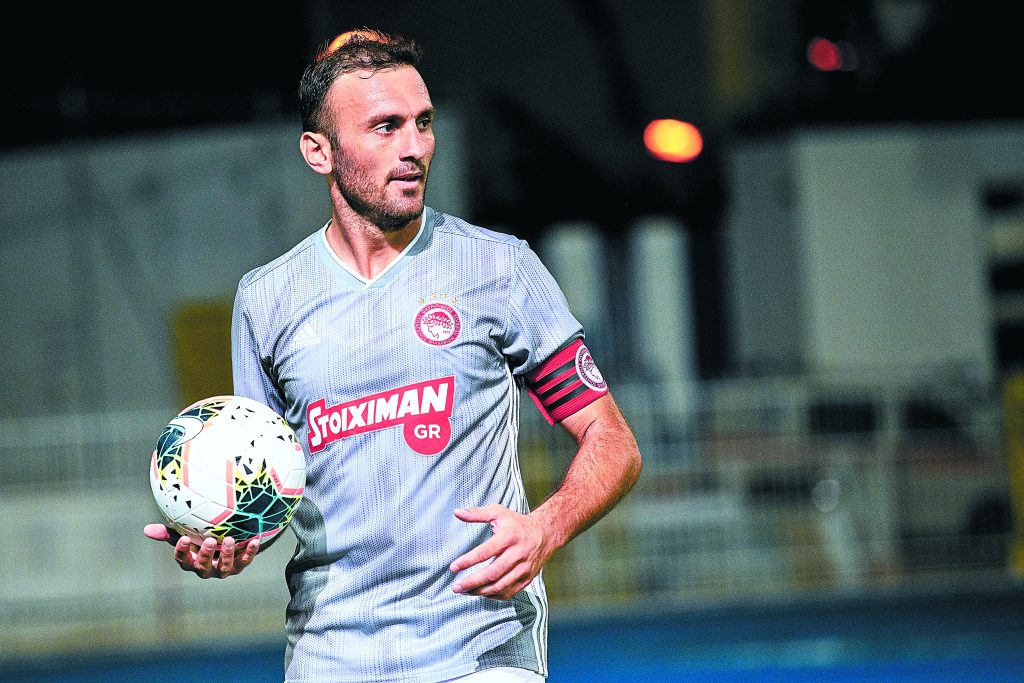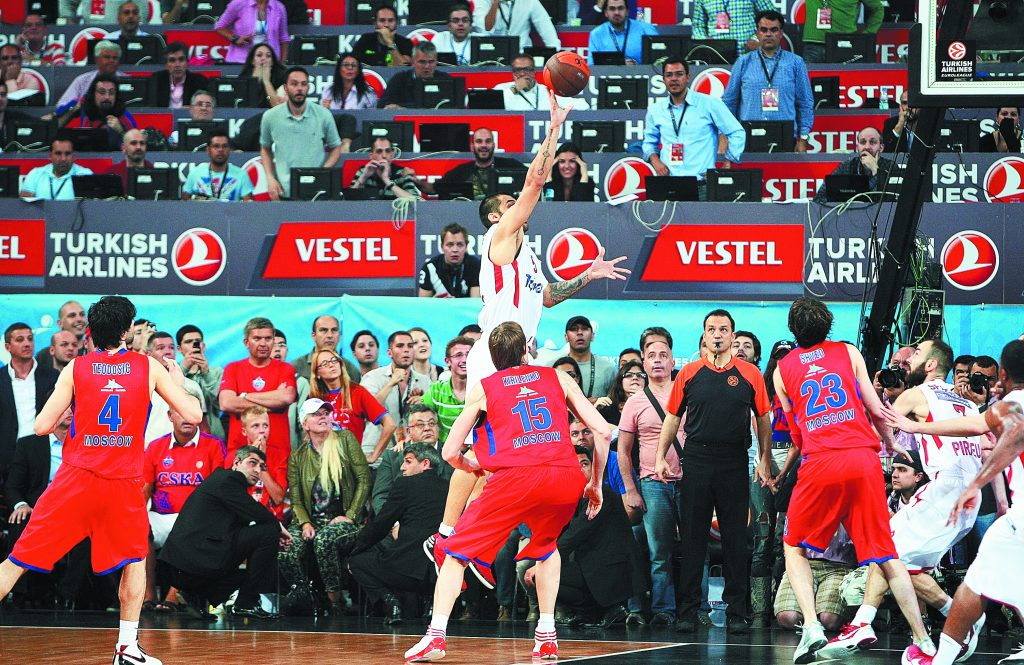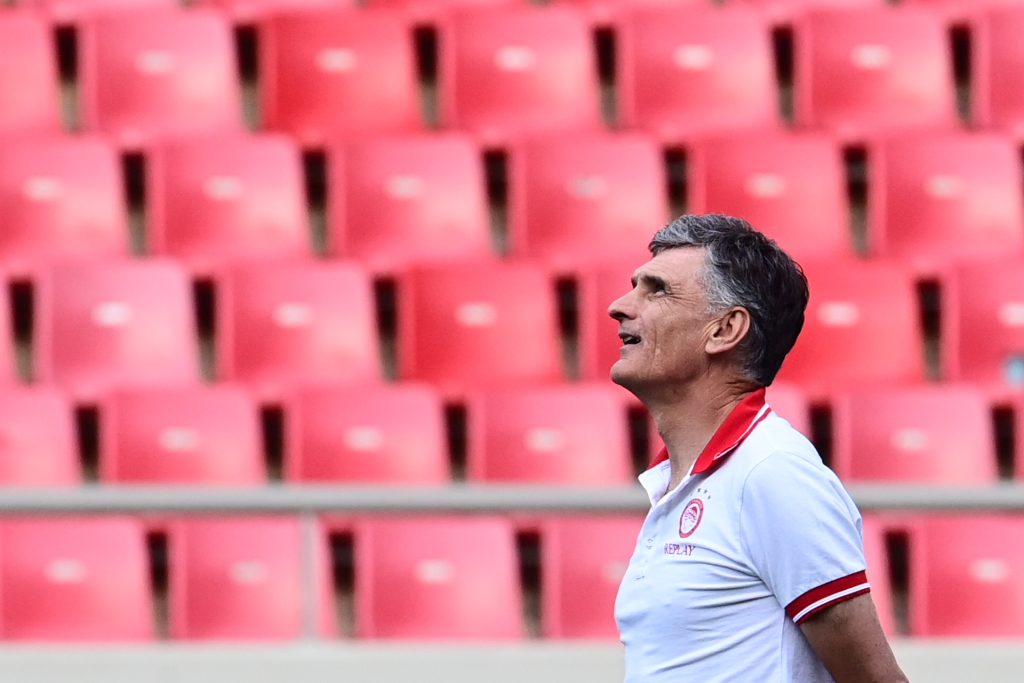If he had chosen to be an actor, he’d have a good chance of making it in Hollywood. If he had chosen music, who knows, he may have made a major presence felt on the stages and concert halls. In order to chronicle Grigoris Georgatos’ history on the playing fields it’s not enough to just provide numbers, however. Instead, you need two or three of the indicative stories that defined what he achieved, what he offered, and what he left behind when he retired in 2007 without much fanfare.
He wasn’t just a football player. It’s not enough to simply remember that “Geo” is a “mainstay” on the 100-year Olympiacos all-star team. It’s difficult to fully cover the achievements, skills and accomplishments that this “crazy bald guy” from Piraeus recorded. With an appearance that resembled the much younger brother of famed Italian referee Pierluigi Collina, Georgatos – with roots from the island of Cephalonia and many years of residing in Patras – retained a “magical left foot”, able to flick the ball to teammates and bypass defenders with tight and lightning quick dribbles. He was an offensive midfielder – with the number “10” on his jersey – with Patras’ Panachaiki, whom manager Dusan Bajevic later transformed into a “hidden” left winger coming up from the defense, a position that he “patented” in Greece.
Playing on the left side of the field for years with Olympiacos he was the “alter ego” of spectacular Serbian midfielder and winger Predrag Djordjevic, a duo that could have played for any top-flight team in Europe.
It wasn’t only Georgatos’ world class playing ability. He had a “red and white soul” from the moment he was born. You could see it in the artery that surged on his neck when he celebrated wildly on the field, the way he felt as if he was being supercharged with the laurel-crowned youth on his jersey.
Georgatos’ love for Olympiacos was inextinguishable, even when his colossal break came in an offer from Inter Milan, a team back then featuring the likes of Roberto Baggio, Christian Vieri and Ronaldo, the Brazilian “version”. Georgatos, in fact, had a unique “double opportunity” with the Nerazzurri, leaving and coming back with a gap season in between, yet in the end he returned permanently to Greece, possibly missing out on an even greater career in European football.
He was destined for Olympiacos, recalling that in January 1996, when only a… lunatic would choose to go to an Olympiacos of the “barren years” and not to a Panathinaikos side that was playing in the Champions League. Georgatos, who was turning heads at Panachaiki, had agreed to a transfer with the then president of Panathinaikos, Giorgos Vardinoyannis, but in the end he never entered the Greens’ head offices to sign the deal. It was his love for Olympiacos that resulted in a decision that would largely change the history of professional Greek football. Georgatos became a member of the great Bayevic team, who in the summer of 1996 assumed the task of (re)building a team that would end the stigma of the “barren years”.
“Geo” was Olympiacos’ ‘soul’ when he played. He’s remembered as one as being part of the dynamic duo on the left side of the field with winger-midfielder Predrag Djordjevic.
A native Piraeus man
A native Piraeus, raised in the working-class Tabouria neighborhood, little Grigoris first went to the Karaiskakis Stadium as a youngster with his grandfather, who was a diehard Olympiacos fan. His father Nikos was a merchant seaman who at some point decided to give up transatlantic routes and instead move to the western port city of Patras in order to work on the ferry boats plying the Patras – Brindisi route. At the age of 18, Grigoris was ready to follow him, but destiny stepped in.
Playing for the small club Ethnikos Patras “Geo” made quite an impression, with the late Kostas Davourlis, then working as a scout, spotting his talent and persuading Panachaiki to sign him. The bigger Patras Club’s manager, Dutchman Rob Jacobs, immediately includes the newly acquired young talent in the starting lineup, and Georgatos… takes off!
With Olympiacos, too, he’s also an immediate standout. Bayevic’s inspiration to place him on the left side (as a left footer) between the defense and midfield is what boosts his career to another level. Although he grumbled at first because he wasn’t too proficient at marking opponents, he soon gets “into the skin” of the new position.
He immediately wins over the fans, who discern his madness for the Club, and soon becomes Olympiacos’ version of the great Roberto Carlos, who he resembles in style of play, position and an …utter lack of hair on his head.

With Predrag Djordjevic playing in front of him on the left side, the question arises: Was this the best left back-left winger combination to ever play in Greek football? In the photo Georgatos and Djordjevic, with Elias Poursanidis.
Inter and the return
His transfer to Inter Milan in the summer of 1999 causes a sensation. In Milan, he’s playing with Ronaldo, the “Phenomenon”, and Vieri, both of whom laud his abilities. In all, he made 28 appearances with the Seria A side and scored two goals. Then, all of the sudden, he stubbornly asks to return to Olympiacos on loan.
According to the press stories at the time, he couldn’t bear to be away from Piraeus, his buddies and Olympiacos. At the end of the one-year loan, he returns to Inter, where things aren’t the same for “Geo”.
Repatriation to Greece follows, as he leaves Inter. However, a decision by the Reds means he doesn’t return to Olympiacos but rather to rivals AEK Athens, where he’s also a standout.
With the first opportunity, however, he returns “home” to Olympiacos. He signs in January 2004 immediately on the dotted line.
He played until 2007 when he decided to end a great career. He won seven championship titles and three Cups, reaching the quarterfinals of the Champions League in 1999. As for his numbers? In 273 games for the Reds he scored 42 goals and provided 35 assists. A left back ahead of his time, who brought his passion to the pitch and let nothing pass, especially when facing his eternal rival. Fans still remember his reaction after scoring the third goal, on a penalty kick, to make the score 1-3 (final 1-4) in a historic Cup qualification against arch-rivals Panathinaikos at the latter’s Leoforos Alexandras stadium.
Heading back to the centerline and pointed to his back to show the number on his jersey. A memorable moment, one of the more unforgettable in Olympiacos’ 100-year history.





